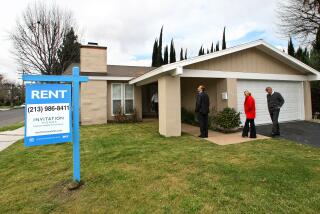Skid row landlord, L.A. settle
- Share via
Los Angeles City Atty. Rocky Delgadillo announced Thursday that his office had reached a $1-million settlement with the owner of two skid row residential hotels accused of illegally forcing residents out of their rooms before the one-month point to keep them from becoming legal tenants.
Authorities also accused the owner of moving out more than 200 occupants in order to convert units into upscale lofts without paying proper relocation assistance fees.
When the city attorney’s office filed charges in 2006 against Rob Frontiera and two corporations he controls, it marked the first time that the office had gone after residential hotel operators for trying to prevent low-income residents from becoming tenants. It was part of an increased focus on improving conditions on skid row, which has the largest homeless population in the western United States.
The Legal Aid Foundation and the Los Angeles Community Action Network aided in the case. Both groups have been frequent partners with the city attorney’s office in skid row efforts.
If the court approves the deal, Frontiera and the two corporations would pay $1 million in civil penalties, restitution to residents and reimbursement of investigative costs. They would have to comply with all government protections for residents and follow proper legal procedures for evictions.
The lawsuit was aimed at what is known as the “28-day shuffle,” the illegal practice by skid row hotels of forcing residents out of their rooms before the one-month mark to keep them from becoming legal tenants and receiving certain rights under state law.
The practice has long been a part of life on skid row. Over the years, people have complained about having to live on the streets for days at a time until they were let back into the hotels.
Homeless services advocates say the ousters undermine the stability of people trying to stay off the streets. Having a regular place to live is especially important for people with mental illness or drug problems. The situation is all the more outrageous because people can spend from $600 to $800 a month to rent the rooms, they said.
Concerns about the poor being pushed out of skid row hotels have been heightened during the last few years as numerous old buildings in the area have been renovated for luxury lofts.
The hotels have for decades been a refuge for transients and poor families who cannot afford better. But some owners have been moving to appeal to a more upscale clientele.
--
More to Read
Sign up for Essential California
The most important California stories and recommendations in your inbox every morning.
You may occasionally receive promotional content from the Los Angeles Times.









